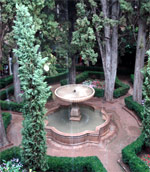By Jim Selman | Bio
Either/or.
This way of thinking about and relating to life is one of the most persistent and difficult aspects of our culture. Everything is either this or that. And if it isn’t this, it must be that.
We are either independent or dependent.
We are either the part or the whole.
We can be unified and whole or we can be fragmented and incomplete.
If something isn’t true, it must be false.
If something isn’t wrong, then it is right.
And on it goes….
This either/or mode of observing and thinking about the world is not a function of our brains. It is a philosophical and social construct that has become a central assumption of our way of being in the world, an assumption that leaves us with innumerable paradoxes and inexplicable mysteries that fall outside this well-defined, black-and-white way of being.
By ‘way of being’ I mean our fundamental relationship with life, with ourselves and other people—even with the concept of time. Nothing is more fundamental to ‘who we are’ than our ‘being’. Normally this is transparent and taken for granted, but it is possible to distinguish it easily in other people, usually as expressed through moods and attitudes but also in their character and commitments in life. What is also true is that when we can distinguish ‘who we are’ from ‘what we do’, we can begin to take responsibility for our way of being and even begin to exercise self-mastery and the power of intentionality.
When we distinguish a relationship with something larger than ourselves, we form the basis of an idea that can encompass both individual freedom and inter-dependence. If there were only an individual, the distinction of ‘individual’ could not exist. The individual would be ‘everything’. From a philosophical perspective, we exist because of everything that we are not. We are only able to experience ourselves separately from everything else around us because everything else is ‘not us’. The idea of independence is an interpretation, for we are dependent upon everything else to ‘be’ in order to define our own existence.
People who meditate or engage in various spiritual or metaphysical disciplines learn that transcending the illusion of the ‘false self’ (the ego) creates an opening for enlightenment, for the discovery that we are always autonomous and one with the ‘whole’.
Many of us realize this intuitively as we grow older. We may find serenity and inner peace with this recognition that who we are is not a ‘thing’ that is always ‘this’ or ‘that’—an appreciative perspective that allows us to be more than an object in an objective/subjective universe.
Wisdom begins when we are able to be responsible for it all, but not limited by our circumstances including the condition of our bodies as we age. To reconcile the paradox of polarity, we must encompass and ‘be’ the whole which includes both unity and separation.
© 2008 Jim Selman. All rights reserved.

